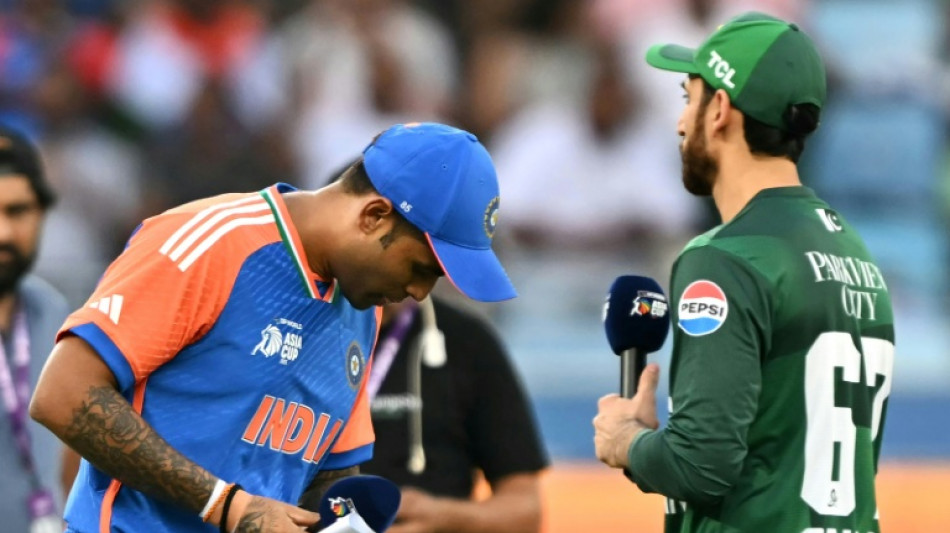
-
 Typhoon Fung-wong floods Philippine towns, leaves 5 dead in its wake
Typhoon Fung-wong floods Philippine towns, leaves 5 dead in its wake
-
France's Sarkozy says prison a 'nightmare' as prosecutors seek his release
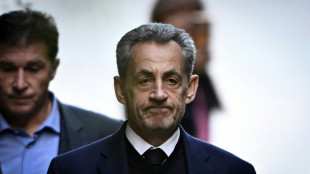
-
 Guinness maker Diageo picks new CEO after US tariffs cloud
Guinness maker Diageo picks new CEO after US tariffs cloud
-
China suspends 'special port fees' on US vessels

-
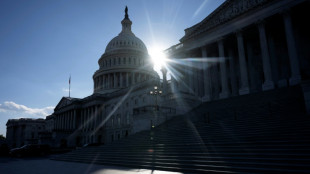 US senators take major step toward ending record shutdown
US senators take major step toward ending record shutdown
-
Typhoon Fung-wong leaves flooded Philippine towns in its wake

-
 From Club Med to Beverly Hills: Assinie, the Ivorian Riviera
From Club Med to Beverly Hills: Assinie, the Ivorian Riviera
-
The 'ordinary' Arnie? Glen Powell reboots 'The Running Man'

-
 Typhoon exposes centuries-old shipwreck off Vietnam port
Typhoon exposes centuries-old shipwreck off Vietnam port
-
French court to decide if ex-president Sarkozy can leave jail
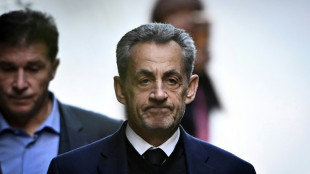
-
 China lifts sanctions on US units of South Korea ship giant Hanwha
China lifts sanctions on US units of South Korea ship giant Hanwha
-
Japan death row inmate's sister still fighting, even after release

-
 Taylor sparks Colts to Berlin win as Pats streak hits seven
Taylor sparks Colts to Berlin win as Pats streak hits seven
-
Dreyer, Pellegrino lift San Diego to 4-0 MLS Cup playoff win over Portland

-
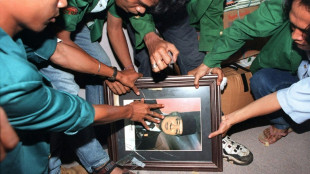 Indonesia names late dictator Suharto a national hero
Indonesia names late dictator Suharto a national hero
-
Fourth New Zealand-West Indies T20 washed out
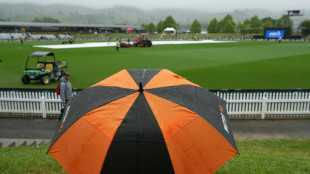
-
 Tanzania Maasai fear VW 'greenwashing' carbon credit scheme
Tanzania Maasai fear VW 'greenwashing' carbon credit scheme
-
Chinese businesswoman faces jail after huge UK crypto seizure

-
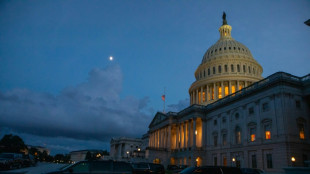 Markets boosted by hopes for deal to end US shutdown
Markets boosted by hopes for deal to end US shutdown
-
Amazon poised to host toughest climate talks in years

-
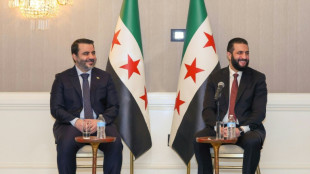 Ex-jihadist Syrian president due at White House for landmark talks
Ex-jihadist Syrian president due at White House for landmark talks
-
Saudi belly dancers break taboos behind closed doors
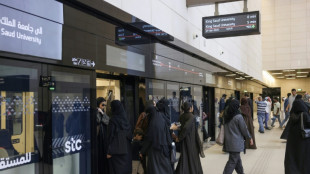
-
 The AI revolution has a power problem
The AI revolution has a power problem
-
Big lips and botox: In Trump's world, fashion and makeup get political

-
 NBA champion Thunder rally to down Grizzlies
NBA champion Thunder rally to down Grizzlies
-
US senators reach deal that could end record shutdown
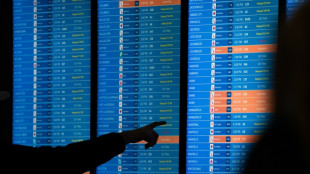
-
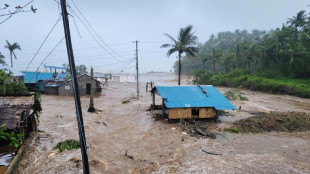 Weakening Typhoon Fung-wong exits Philippines after displacing 1.4 million
Weakening Typhoon Fung-wong exits Philippines after displacing 1.4 million
-
Lenny Wilkens, Basketball Hall of Famer as player and coach, dies
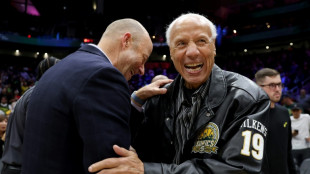
-
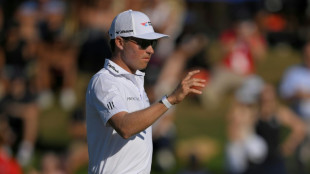 Griffin wins PGA Mexico title for third victory of the year
Griffin wins PGA Mexico title for third victory of the year
-
NFL makes successful return to Berlin, 35 years on
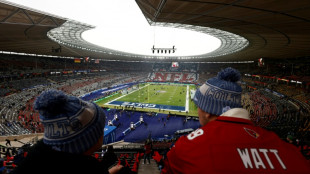
-
 Lewandowski hat-trick helps Barca punish Real Madrid slip
Lewandowski hat-trick helps Barca punish Real Madrid slip
-
George warns England against being overawed by the All Blacks

-
 Lewandowski treble helps Barca beat Celta, cut gap on Real Madrid
Lewandowski treble helps Barca beat Celta, cut gap on Real Madrid
-
Neves late show sends PSG top of Ligue 1, Strasbourg down Lille

-
 Inter go top of Serie A after Napoli slip-up
Inter go top of Serie A after Napoli slip-up
-
Bezos's Blue Origin postpones rocket launch over weather

-
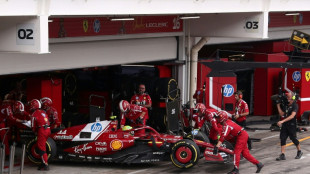 Hamilton upbeat despite 'nightmare' at Ferrari
Hamilton upbeat despite 'nightmare' at Ferrari
-
Taylor sparks Colts to Berlin win, Pats win streak hits seven

-
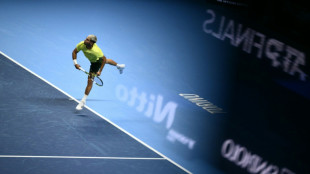 Alcaraz and Zverev make winning starts at ATP Finals
Alcaraz and Zverev make winning starts at ATP Finals
-
Protests suspend opening of Nigeria heritage museum

-
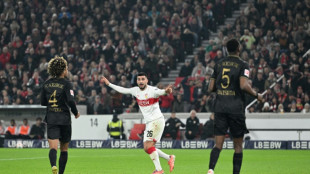 Undav brace sends Stuttgart fourth, Frankfurt win late in Bundesliga
Undav brace sends Stuttgart fourth, Frankfurt win late in Bundesliga
-
Roma capitalise on Napoli slip-up to claim Serie A lead

-
 Liverpool up for the fight despite Man City masterclass, says Van Dijk
Liverpool up for the fight despite Man City masterclass, says Van Dijk
-
Two MLB pitchers indicted on manipulating bets on pitches
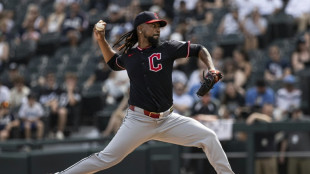
-
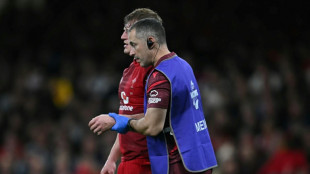 Wales rugby captain Morgan set to be sidelined by shoulder injury
Wales rugby captain Morgan set to be sidelined by shoulder injury
-
After storming Sao Paulo podium, 'proud' Verstappen aims to keep fighting
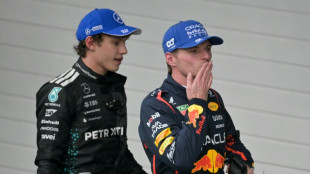
-
 US flights could 'slow to a trickle' as shutdown bites: transport secretary
US flights could 'slow to a trickle' as shutdown bites: transport secretary
-
Celtic close on stumbling Scottish leaders Hearts
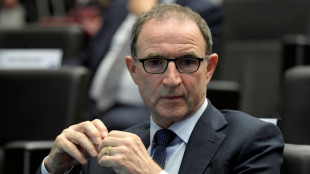
-
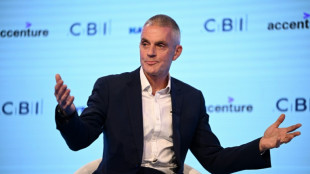 BBC chief resigns after row over Trump documentary
BBC chief resigns after row over Trump documentary
-
Norris extends title lead in Sao Paulo, Verstappen third from pit-lane
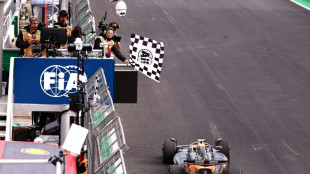

Just not cricket: how India-Pakistan tensions spill onto the pitch
India and Pakistan's refusal to shake hands during their Asia Cup cricket matches bent the code of the so-called "gentleman's game", as sport once again served as a proxy battlefield.
The tournament marks the first meeting between the nuclear-armed neighbours since their armies clashed in May -- a four-day exchange of artillery, drones and missiles that killed more than 70 people.
The sporting rivals do not play bilateral matches, meeting only at neutral venues during international tournaments.
The handshake snub is the latest example of how cricket mirrors politics between the two countries.
- Eyes down -
The cricket-mad neighbours have already met twice in the Asia Cup T20 tournament this month, played in the United Arab Emirates as a neutral venue.
On September 14, India captain Suryakumar Yadav said his refusal to shake hands with his Pakistani counterpart was "aligned with the government" -- a move Pakistan said had "disappointed" them.
When they met again on September 21, neither side offered the traditional handshake. Both skippers kept their eyes and hands down after the toss.
The hostility did not stop there. Pakistan's Fakhar Zaman celebrated his half-century by using his bat like a gun, while his teammate Haris Rauf taunted the crowd by seemingly mimicking a plane crashing, an apparent reference to the Indian fighter jets that Pakistan said they shot down in May.
India won both games.
If both sides progress, they may meet in the September 28 final -- and again in October when India co-hosts the Women's World Cup, with that game played in Sri Lanka.
- 'Cricket for peace' -
A love of cricket is one thing the two sides can agree on.
In 1987, Pakistan's then military ruler Ziaul Haq stunned India with a surprise visit to a Test match in Jaipur.
The hastily arranged trip, dubbed "cricket for peace", helped defuse a tense border standoff and saw Zia charm both fans and Indian prime minister Rajiv Gandhi.
In 2005, a match in New Delhi brought Pakistan's then president Pervez Musharraf face-to-face with Indian leader Manmohan Singh.
- Pitch gardening -
In 1991, spade-wielding activists from India's Hindu right-wing Shiv Sena party dug up the pitch at Mumbai's Wankhede Stadium to prevent Pakistan's cricket tour.
The scheduled one-day series was cancelled.
Security fears forced Pakistan to call off two more tours in 1993 and 1994 before returning for the 1996 World Cup.
In 1999, Shiv Sena struck again, damaging the pitch at New Delhi's Feroz Shah Kotla stadium ahead of a Test match, but authorities repaired it in time.
- Fans evicted -
A 1999 Test in Kolkata's Eden Gardens descended into chaos after India's Sachin Tendulkar was controversially run out following a collision with Pakistan's Shoaib Akhtar.
Crowds erupted, chanting "cheat, cheat" and hurled water bottles at Akhtar, forcing officials to halt play.
Tendulkar's pleas failed to calm the stands, thousands of fans were evicted, and Pakistan sealed victory in front of empty stands.
- Pakistan ban -
Pakistani stars were a major draw in the Indian Premier League's 2008 debut season, with Sohail Tanvir topping the wicket charts.
But after the Mumbai terror attacks that same year, carried out by Pakistan-based militants, Indian authorities barred players from across the border.
The ban remains in place, depriving Pakistan cricketers of the chance to play in the world's most lucrative T20 league.
R.Halabi--SF-PST
